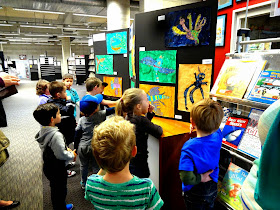Almost two months
ago now, spurred on by one of our children, Oscar, whose lunch box is covered in
dragon stickers from the movie ‘How to train your dragon 2’, we began some art work at Mairtown.
From a teachers
perspective this has been a really interesting topic to work with alongside the
children. It isn’t a subject I would usually have chosen for art work and observational
drawings, but these dragons (namely Toothless,
Stormfly and later the twins Belch
and Barf) along with the knowledge the children have of them, has really
piqued and sustained their interest.

What this
reiterates for me is just how wonderful early childhood education is. How we
can follow the passions of children then plan and negotiate the next steps together. And of course when we do follow the interests
of the child (not necessarily the teachers) their work will feed back into all
the key learning areas – physical, emotional, social, mathematical and
literacy.
Many teachers start their planning with a topic (bugs,
spring, volcano’s), yet we should start planning with the simple questions - Who
is this child right now in front of us, What are their interests and learning
intentions, and, How as a teacher can I support and facilitate this?
By looking at some of the drawings of the children’s dragons, the complex shapes, and vibrant colours, it is clear to see how the children’s connections with these fantasy creatures has allowed their imaginations to inform their work.
“Art can bring imagination to life and give life to imagination” Dogra
2010
Many children have
drawn several dragons; some children have drawn over 10 each. This alone shows
the level of engagement this topic has offered.
Kolbe (2014) can
probably answer why this has been so engaging for the children when she states,
the key to sustained engagement of
children is allowing them to choose for themselves; to choose the objects and
materials for their own playful and imaginative purposes – the children will then
decide for themselves what learning they will do.

Whilst we were
still working on dragons at kindergarten, Glenn who visits us on the library
bus asked if we’d like to select some of the children’s art work for an
upcoming exhibition that was taking place in the library. Of course, along with the children’s agreement
we choose to exhibit our colourful and stunning dragons!
Regular readers of
our blog, and our kindergarten whānau, will know just how much we value and
cherish the arts for all it can offer; the arts are certainly recognised as an important
and valuable element of our kindergarten programme at Mairtown.
With that in mind
I’m going to share how our work on dragons has now – over two
months later, come to an interlude - perhaps only temporarily! Last week some parents and a
small group of the children, who had been working on these splendid dragons, joined me as we took a visit into the town library to see their works of art on display. Any
trip is exciting for the children, but the underlying theme of this excursion was the empowerment the children received as they spotted and recognised how
their work was professionally displayed, how it was valued and respected by
others within our community and how members of the public openly talked about
the talents and skills of these children. The children definitely recognise
themselves as successful artists; just imagine listening to this little snippet of a conversation I overheard
as two children contemplated at their work.
Emma: 'There are the dragons, there are the dragons, look, look' (in a very excited voice!)
Peter: 'I see them, there's mine, there's yours, yep, all there'
Wyatt: ‘You know, I want to be an artist’
Payton: ‘I am, I am already an artist’
 |
| Our artists at the Library in Whangarei |
















WOW you are all such talented artists! I hope I can get down to the Whangarei Library to see your artwork on display. Fabulous to see such great thinking and creativity in your work. I imagine it took great persistence to.
ReplyDeleteWow, what fabulous teaching and learning happening at Mairtown! We have shared this inspiring blog on our facebook page: www.facebook.com/firstdoortraining
ReplyDelete